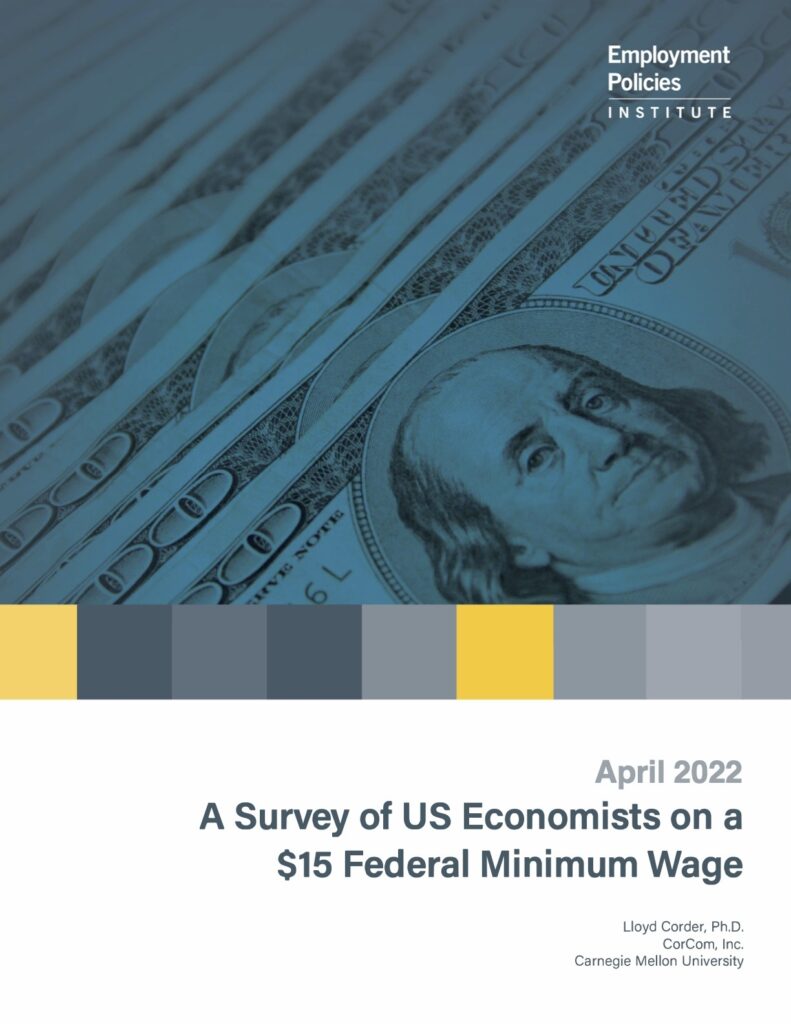Abstract
Across the nation, lawmakers continue to grapple with the viability and impact of increasing the minimum wage to $15 an hour. The debate continues to be heated and some cities have already enacted increases they believe will benefit workers. While the impact of these increases is becoming more clear, recent surveys of businesses, franchises and other groups confirm that such minimum wage raises actually harms workers, resulting in fewer jobs, greater difficulty in younger workers finding employment and adoption of automation and other changes to offset the higher cost of labor. Many of these changes have been exacerbated by the pandemic, labor shortages and a mass exodus of some employees from the job market. Additionally, work environments have also changed with estimates as high as one-fourth of future jobs staying remote.
To better understand how US economists view the likely impact of raising the federal minimum wage to $15, a survey of 160 economists was conducted in February 2022.
Key Findings:
- A strong majority (62%) of economists surveyed oppose raising the rate to $15/hour.
- Two-in-five (43%) say the current rate of $7.25 or less is the correct rate.
- Most (75%) feel that an increase to a $15 minimum wage would have a negative effect on employment levels for youth (under 20 years old).
- Fifty-eight percent think raising the minimum wage will contribute to inflation following the pandemic.
- Most economists (73%) think eliminating the tipped minimum wage will reduce the number of tipped jobs available.
